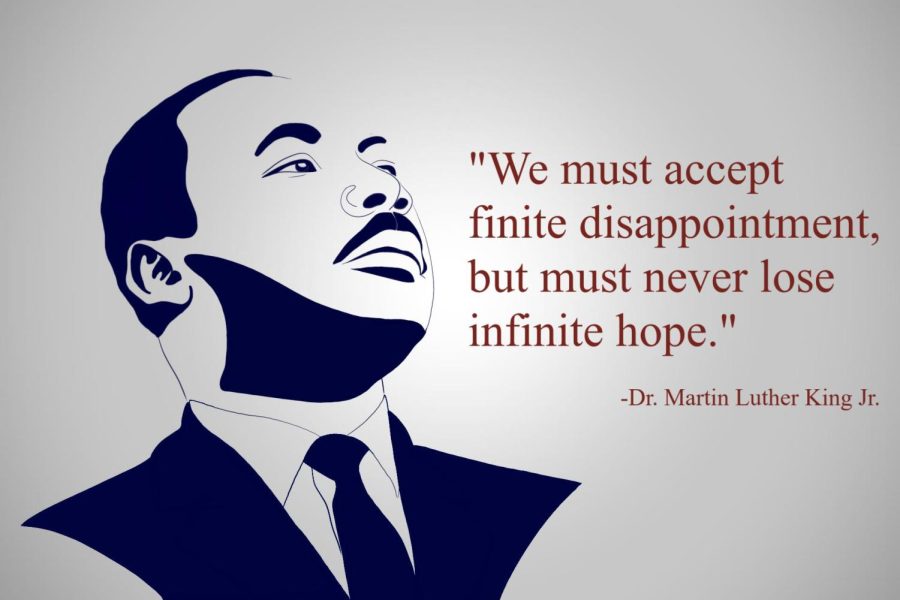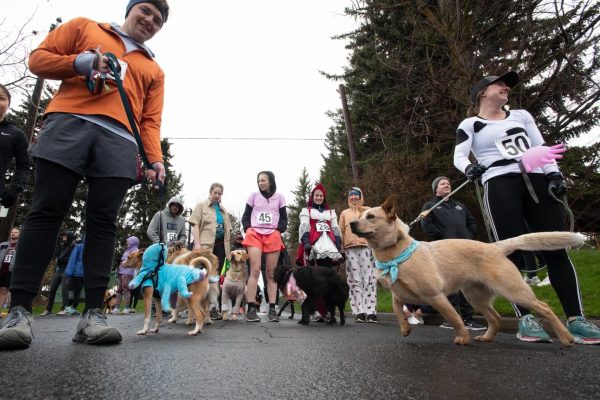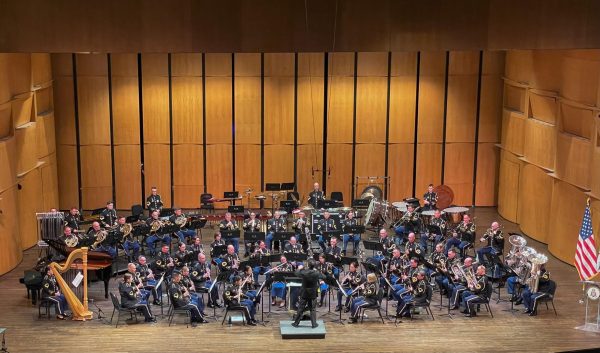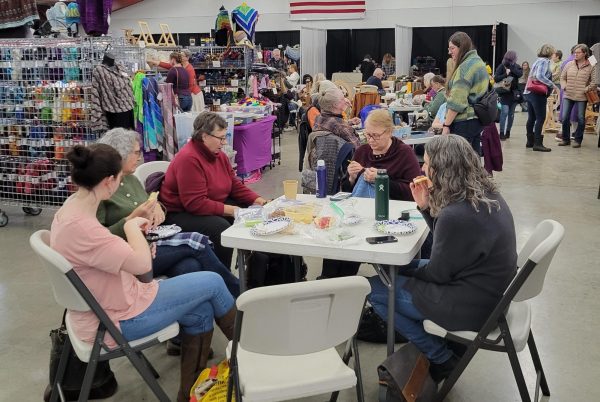‘Black Mental Health Matters’
Latah County Human Rights Task Force hosts 28th annual community breakfast in honor of MLK Jr.; promotes mental health equity
Phillip J. Roundtree was the featured speaker at the Martin Luther King Jr. Human Rights Community Breakfast. Roundtree discussed his personal relationship with MLK as well as the importance of access to mental health care for communities of color.
January 20, 2022
“Community is what helps sustain us, energetically, as we confront systems of oppression,” guest speaker Phillip J. Roundtree said.
On Saturday Jan. 15, the Latah County Human Rights Task Force held its 28th community breakfast honoring the memory of Martin Luther King Jr. — while also reasserting its commitment to diversity and inclusion.
This year, the event was held over Zoom and focused on the relationship between mental health and human rights, featuring guest speaker Philip J. Roundtree. Roundtree has been practicing professionally in the mental health field since 2005, as well as running his own nonprofit, Quadefy, LLC. Roundtree’s TedxTalk “Black Mental Health Matters” has been viewed thousands of times online.
Task Force Chair Joann Muneta said the Martin Luther King Human Rights Community Breakfast began soon after the organization was founded thirty years ago. The community breakfast was started in protest of the growing neo-Nazi presence in Coeur d’Alene, Idaho during the 1980s and 90s.
Muneta said the breakfast allows the community to come together on the topic of diversity and inclusion.
During the event, Roundtree talked about his experience reading King’s work. He said he felt like he was “conversing” with King through his book as he navigated King’s journey and personally connected with his experiences.
“Like him, I found myself grappling with the impact of systemic racism, which exacerbated my depression and anxiety,” Roundtree said. “My body vividly remembers the fear of matching the description of a person of interest multiple times over my teenage years. The mere thought of it causes my body to tense and my heart to beat rapidly.”
In his keynote speech, Roundtree addressed the lack of representation in the mental health field as well as the lack of mental health resources for communities of color. He said young, Black men are often misdiagnosed with Attention Deficit Hyperactive Disorder (ADHD) because only around 4% of psychologists in the U.S. are Black.
Muneta said the theme of mental health is relevant because a lot of Americans are experiencing mental distress. The community is experiencing stress due to the pandemic, as well as witnessing violence across the country against people of color, as well as the anniversary of the attack on the U.S. Capitol on Jan. 6.
During the event, Roundtree cited his four-step approach to social justice in these difficult times, the first of which is the importance of community. Roundtree said in his speech that individuals do not beat institutions alone, which spoke to Muneta on a personal level.
“I’m 86 years old, so I’ve seen a lot of protest movements,” Muneta said. “That’s why I really responded to the speaker talking about the need for community. It’s not just one community: [it is] different communities coming together to form a home.”
Muneta’s efforts to educate her Idahoan community on equality are inspired by her life experiences. She grew up in a diverse New York City as a Jewish woman who lost many family members to the Holocaust.
She said it is the Task Force’s mission to be proactive in advocating for human rights in the community. The Task Force is circulating a letter about anti-semitism in Boise, Idaho, and is planning a Martin Luther King Jr. art and essay contest this February.
At the community breakfast, two individuals involved with the Task Force were presented with the Rosa Parks Human Rights Achievement Awards for their dedication to social justice in the community.
Linda Nickels received the community award for her work at the Moscow Food Bank, and Ellie Pimentel won the junior award for launching a PERIOD chapter at Moscow High School to promote menstrual equity.
The community breakfast concluded with its first-ever question and answer activity, facilitating a discussion between Roundtree and the 67 attendees. During the activity, Roundtree said he found the strength to openly discuss his mental health by speaking his truth and realizing “it can’t be weaponized.”
“When I do speak, it’s with the spirit of Dr. King. It’s with the spirit of ancestors who aren’t here that nobody will ever know their name. It’s that spirit of memory that will get us to where we need to be,” Roundtree said.























